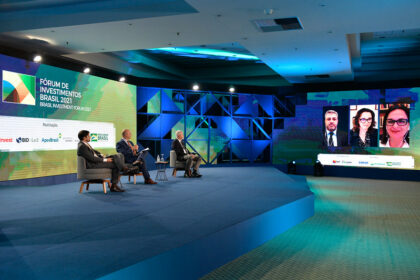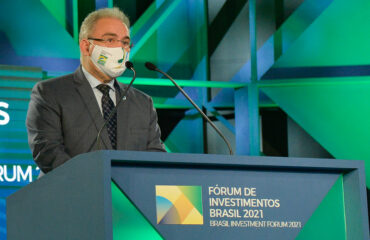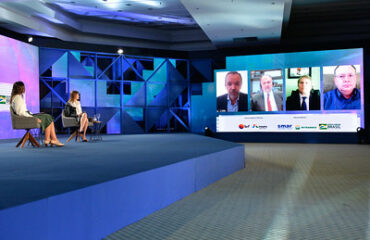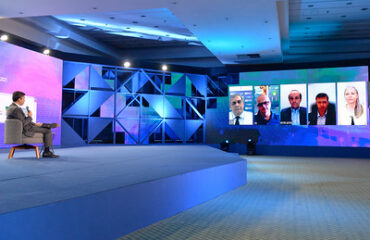
The advances, challenges and opportunities of consolidating digital business models in Brazil were the theme of the panel “Industry – Impacts of Digitalization, Servitization, IoT and Industry 4.0”, held on Monday (31), as part of the Brasil Investment Forum (BIF) 2021. The participants agreed that the adoption of new technologies and digital transformation are key to development.
The Special Secretary of Productivity, Employment and Competitiveness of the Ministry of Economy, Carlos da Costa, stressed that Brazil is taking initiatives seeking technological development to improve the country’s business environment. According to him, Brazilian industry endured a period of falling productivity and a reduction in the segment’s share of the national Gross Domestic Product (GDP), but public policies in the technology area are starting to show results. “Within the digital agenda, we are implementing new regulatory frameworks and developing the foundations for Industry 4.0,” he said.
Costa also mentioned some outstanding actions to encourage this technological development. Among them, the development of suppliers, the training of micro and small companies and the repositioning of the Brazilian Agency for Industrial Development (ABDI), which now has the digitalization of the industry as its focus.
Panel moderator, the President of ABDI, Igor Calvet, pointed out that Brazil is already experiencing this digitalization. “The adoption of technologies in the productive process, the government’s view on this process, the legislative measures that are being taken, and the way companies are positioning themselves on a daily basis show that this is already a reality,” he said.
The Executive Director of Digital Transformation and Innovation at Petrobras, Nicolás Simone, presented the digital transformation strategy of the institution. The goal, he said, is to make the company “less bureaucratic” and continue to invest in innovation, with actions such as the purchase of supercomputers, and the improvement of professionals. For Simone, “every digital transformation takes place through people; it is also a cultural transformation”.
Companies
The President of IBM Brasil, Katia Vaskys, reinforced the country’s role as one of the most attractive destinations for foreign investments and highlighted that Brazil was the first country to host an IBM subsidiary outside the United States. “The technology industries have a fundamental role in the construction of open business models that allow the digital inclusion of society. Brazilian economy is ready to continue investing in digitalization and to work with a smarter, more open and inclusive environment”.
For the President and CEO of Scania Latin America, Christopher Podgorski, the brand’s 62-year history in Brazil is a sign of the development of transport in the country. “When we talk about digitalization and servitization, we are a true copy of our parent company in Sweden. We had the possibility of making the technology transference”, he highlighted. He also pointed out that the company is prepared for new business models based on new technologies. “We understand how the new business models will be in the future. We don’t know how it will end, but we will be positioned,” assured Podgorski.
Senior Policy Director of the Brazil-US Business Council (BUSBC), Renata Vasconcellos affirmed the country has done great work in the area of Artificial Intelligence, but reminded that there is still a lot of room for growth, citing telemedicine and rural connectivity as examples of segments to be worked on. “With the pandemic, we had a practical course on intensive digitalization. The challenge is to overcome outdated laws that can impact Artificial Intelligence, not only in Brazil, but worldwide”.
Brasil Investment Forum (BIF) The Brasil Investment Forum (BIF), organized by Apex-Brasil, the IDB and the Brazilian Government, ended on Tuesday (June 1st). It was attended by the Chief Minister of Staff, Luiz Eduardo Ramos; Minister of Economy, Paulo Guedes; Minister of Health, Marcelo Queiroga; Minister of Infrastructure, Tarcísio Freitas; Minister of Mines and Energy, Bento Albuquerque; and Minister of Agriculture, Livestock and Food Supply, Tereza Cristina, as well as dozens of authorities from the public and private sectors.



